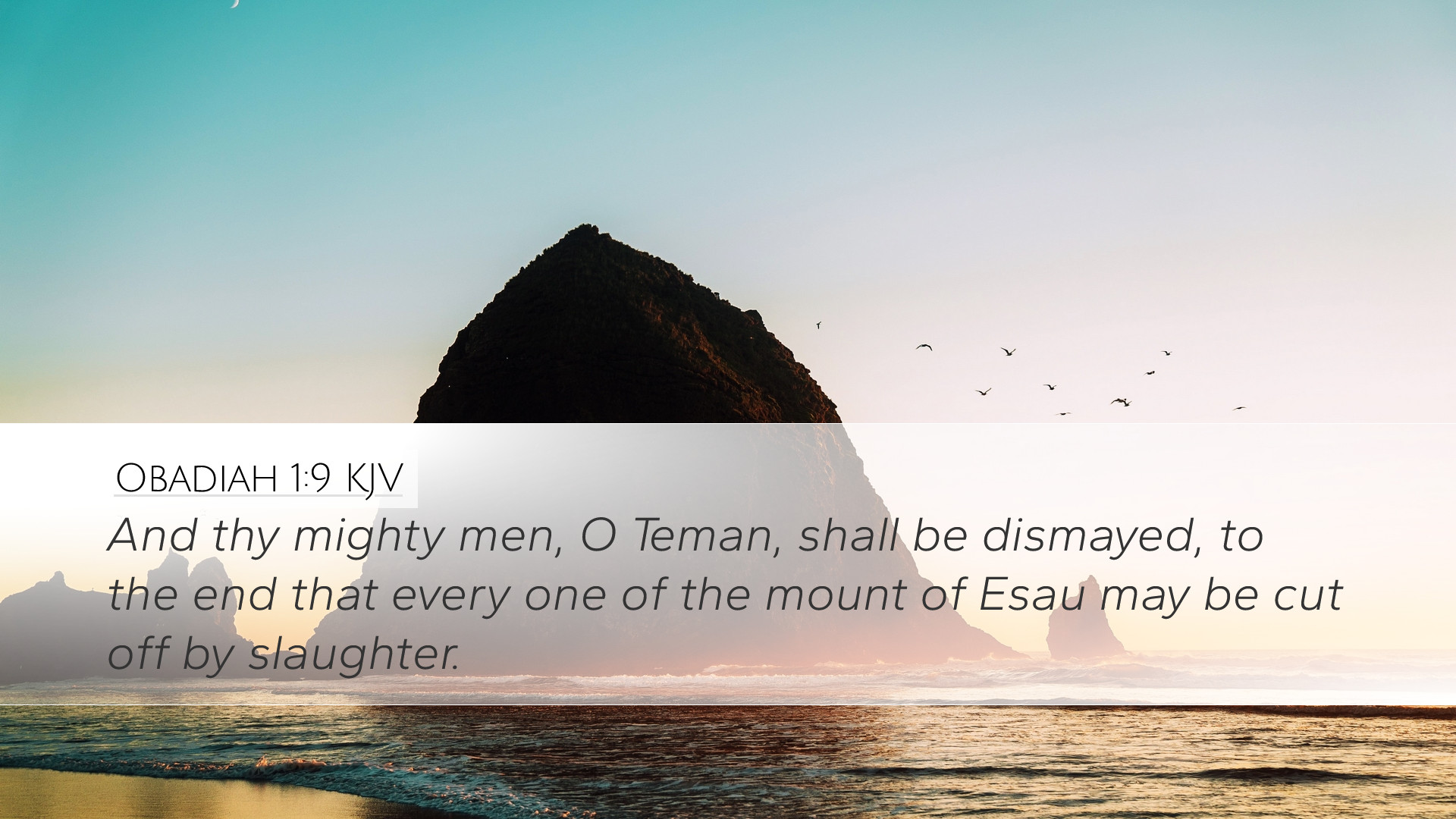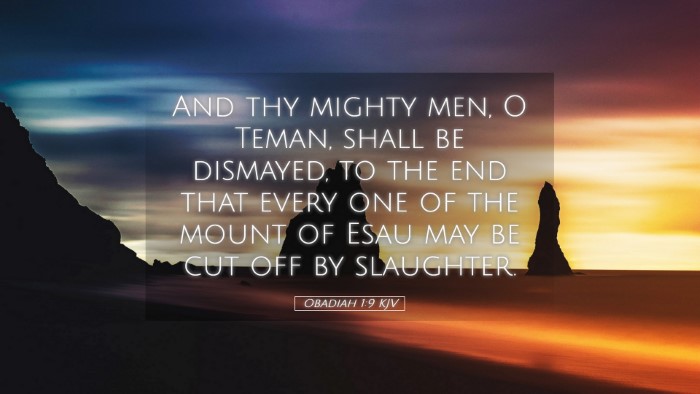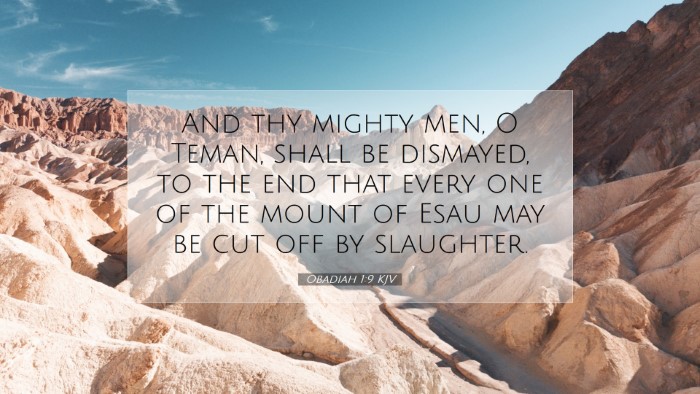Commentary on Obadiah 1:9
Verse Text: "And thy mighty men, O Teman, shall be dismayed, to the end that every one of the mount of Esau may be cut off by slaughter."
Introduction
The Book of Obadiah, though the shortest book in the Old Testament, carries profound themes regarding judgment, justice, and the sovereignty of God over nations. Obadiah prophesies against Edom, represented by its capital, Teman, focusing on God’s impending judgment upon them for their pride and violence against Israel. This passage reveals the futility of human strength when opposed to divine will.
Contextual Background
Obadiah's prophecy occurs in a historical context of conflict between Israel and Edom. Edom, a nation descended from Esau, embodied hostility toward the Israelites, descendants of Jacob. The tensions stem from the early narratives in Genesis, where the sibling rivalry foretold a lasting enmity.
Exegesis of Obadiah 1:9
The phrase “thy mighty men, O Teman” highlights a specific reference to Edom’s warriors, those regarded as strong and formidable. This address serves to indicate that even their might is not safe from the impending judgment.
Theological Implications
- Human Strength vs. Divine Sovereignty: The verse emphasizes the absolute authority of God over human endeavors. The mighty men of Edom, presumed to be invincible, will face dismay.
- Pride and Downfall: Edom’s pride led them to believe they were untouchable. The prophetic word indicates their confidence will turn to fear, demonstrating that pride often precedes destruction (cf. Proverbs 16:18).
- Justice and Retribution: This verse signifies the principles of divine justice; Edom's actions against Israel—as contributing to their suffering—are facing consequences.
Commentary Insights
Various commentaries provide valuable insights into this verse:
Matthew Henry's Commentary
Henry posits that the mention of Teman represents not just a geographic location but the pride and confidence of Edom. He notes that the dismay of the mighty men indicates a collapse of their power, emphasizing how God orchestrates events even against the most secure fronts. The pursuit of vengeance and the role Edom played in Israel’s disaster is paramount.
Albert Barnes' Notes
Barnes interprets "mighty men" as referring to the strength and valor of those in Edom, although they will not elude divine judgment. He highlights the significance of the phrase <<“unto the end”>> suggesting a complete and utter defeat, extended and thorough, reflecting God’s unyielding righteousness. Barnes suggests the prophecy emphasizes the futility of relying on human strength opposed to God’s purposes.
Adam Clarke's Commentary
Clarke brings out the historical settings, elaborating on how dismayed Edom’s warriors would be in the face of destiny ordained by God. He highlights the descriptive language of “cut off by slaughter,” interpreting it as a comprehensive divine judgment that befell not just the individuals but the societal structure of Edomite society.
Application for Modern Readers
This verse, while set in a historical context, holds relevance for contemporary believers:
- Recognition of God’s Control: In an era where human might and power gain prominence, believers must be reminded that God reigns supreme over all earthly powers.
- Humility in Human Achievements: The emphasis on pride serves as a caution for individuals and nations alike to remain humble and reliant on God's grace.
- Advocacy for Justice: The cry for justice against enemies encourages today's followers to seek righteousness and support those unjustly oppressed.
Conclusion
Obadiah 1:9 encapsulates profound theological truths about human pride, divine judgment, and the overarching sovereignty of God. It serves as a reminder that no matter how strong or secure one might feel, the arrival of divine justice can change circumstances drastically. For pastors, students, and theologians alike, this passage encourages profound reflection on the nature of power, humility, and reliance upon God in the face of adversity.


